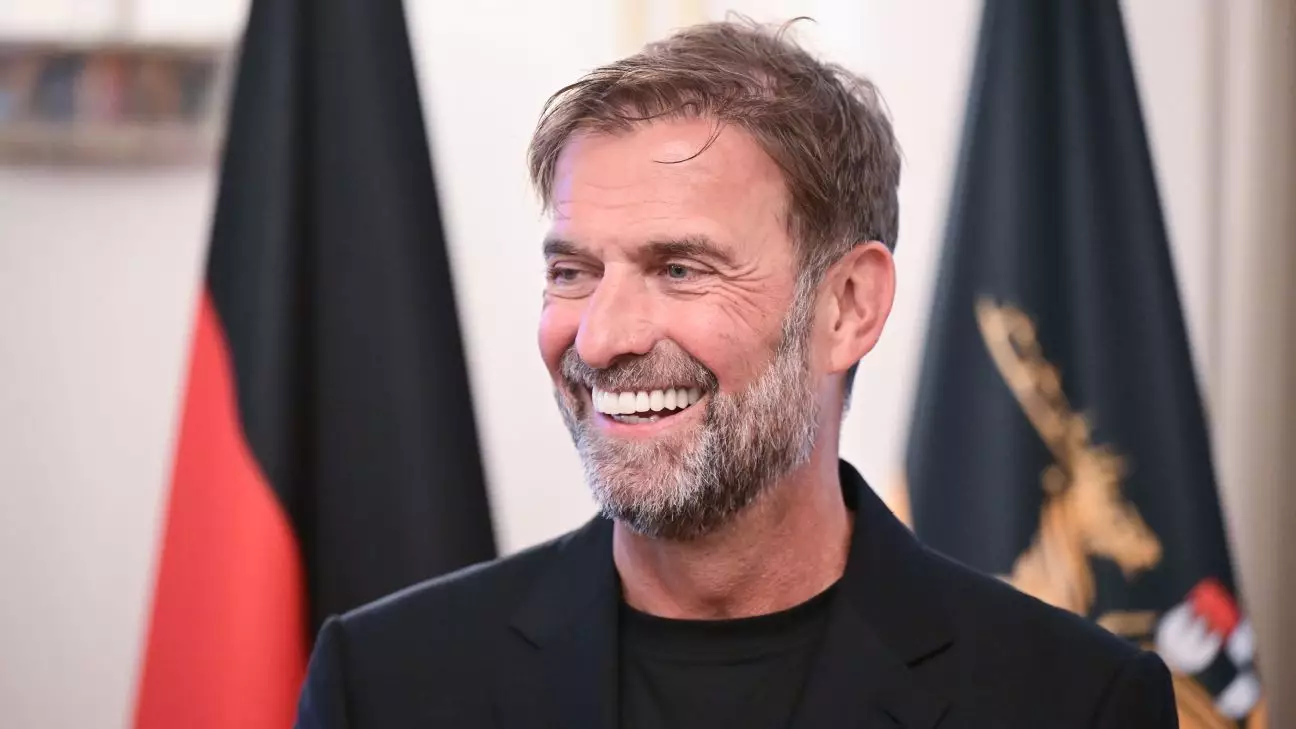The world of professional football often finds itself at a crossroads between tradition and innovation, and nowhere is this tension more evident than in Jürgen Klopp’s recent pivot to a role with Red Bull. Once a stalwart of the traditional Bundesliga landscape, Klopp now enters a realm fraught with mixed emotions and public skepticism. As he embraces this new journey, it becomes crucial to explore the implications of his decision, and how it contrasts with the sentiments surrounding modern football in Germany.
Despite being removed from the German football scene for nearly ten years, Jürgen Klopp’s presence remains palpable in the nation’s media landscape. His broad appeal has transcended the game, making him one of Germany’s most cherished personalities. Through various advertisements, from luxury cars to exercise bikes, Klopp’s infectious charisma has forged a connection with the public that extends beyond the pitch. Bundesliga fans have long seen him as their native son, embodying the very spirit that makes the league unique.
However, this same warmth is tested by Klopp’s unexpected alliance with Red Bull, a corporation that evokes polarizing emotions among football traditionalists. This transition signifies not only a professional move but also a symbolic shift, suggesting that even beloved figures can navigate towards commercial ventures that many in the fan base view with suspicion.
To understand the backlash, we must dissect Red Bull’s controversial entry into football. The inception of RB Leipzig in 2009 was viewed by many as an affront to the longstanding culture of German football, which prides itself on community ownership and involvement. Red Bull’s tactic of sidestepping traditional governance structures birthed a club that seems to many as a crafted marketing tool rather than a genuine football entity. Thus, possessing the once-revered Klopp as a face of this organization seems to add insult to injury for loyal fans who revere football’s storied traditions.
While Klopp’s intentions may be geared toward promoting a vision of togetherness and success within the RB network across the globe, the discontent resonates deeply within Germany. A recent poll by the respected Kicker magazine revealed that a substantial 72% of respondents viewed Klopp’s decision unfavorably. The contrast between public sentiment and prior support he has enjoyed illustrates the precariousness of football loyalties when confronted with corporate undertones.
Contrasting public reception reveals profound differences between England and Germany regarding football transitions. In England, figures who make daring moves are often regarded with admiration or indifference, suggesting a more liberal approach to professional decisions. Technically, this isn’t true for Klopp; he is still held in high esteem. His move sparked fervent discussions, yet the skepticism surrounding it denotes a greater cultural attachment to notions of ‘the ordinary man’ that he has cultivated over the years.
In Germany, however, many view Klopp’s partnership with the contentious Red Bull brand as a betrayal. This sentiment isn’t merely anecdotal; discussions surrounding the issue remain heated. While figures in the footballing world like Fredi Bobic argue that modern football requires a structural evolution, traditionalists lament the loss of community and authenticity. It’s a clash of ideologies that speaks to a broader crisis in the sport.
As Klopp embraces this new challenge, what is essential for him to grasp is the paradigm shift occurring within the German football landscape. Under the guidance of Julian Nagelsmann, the national team is rekindling an appreciation for performance-driven selections, paving the way for talented players across various clubs. It demonstrates a willingness to innovate while respecting established traditions that many fans hold dear.
In tandem with Klopp’s role, there lies potential for him to shift perceptions regarding Red Bull if he manages to instate humanistic values within their operations. Should he showcase the capability of melding commercial success with ethical considerations and contributions to the German football community, Klopp may very well redefine not only his professional identity but also the footballing narrative itself.
As Jürgen Klopp steps into an arena laden with complexities, the reflection on his professional trajectory presents an opportunity for both growth and upset within the football community. His association with Red Bull may very likely signify a transitional phase for the sport, where loyalty, tradition, and the influence of corporatization collide. In the meantime, fans and pundits alike will be watching closely, waiting to see how Klopp’s journey will redefine not just his legacy, but potentially the broader ideologies surrounding football in Germany and beyond.

